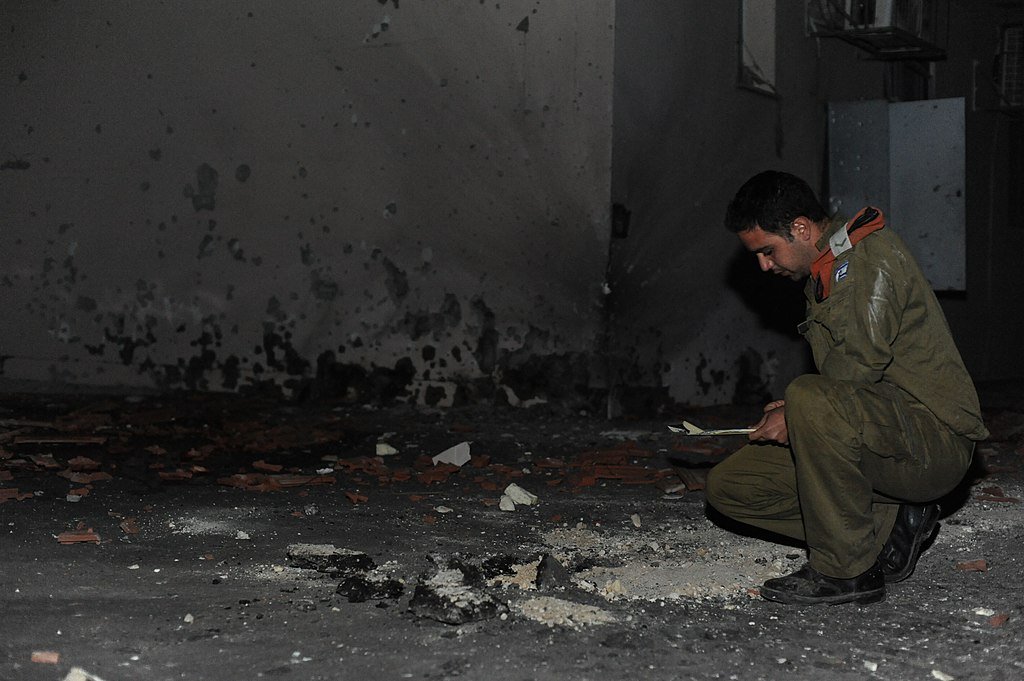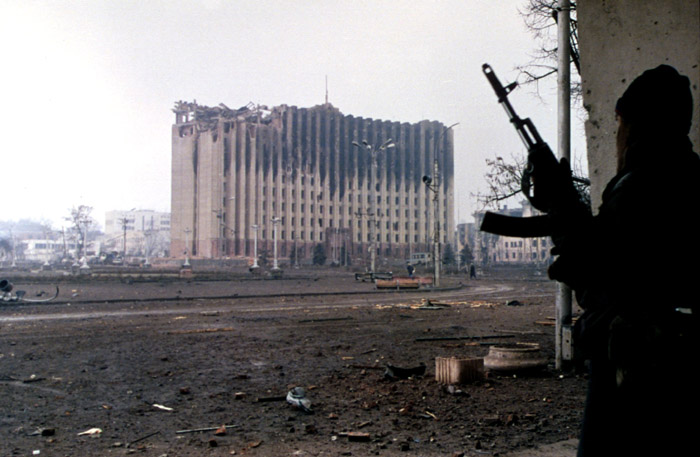The Hamas Attack Is Israel’s 9/11, Yet the Country Must Trace the Differences and Legal Pitfalls
Many are comparing the current conflict to 9/11. What are the differences, and what are the dangers of such a comparison?

Published by The Lawfare Institute
in Cooperation With

The latest Hamas attack on Israel has been labeled correctly as Israel’s 9/11. The scale of the attack and its impact—physical and emotional—is meaningfully comparable to the shock that American society experienced witnessing hijacked planes crashing into the Twin Towers and the Pentagon. The broad support for Israel around the globe is also comparable to the support the world extended to the U.S. at the time.
Given its dimensions, there is no doubt that, like 9/11, the latest Hamas attack will receive a response that will move beyond just weakening the organization’s military capacities. Israeli Prime Minister Benjamin Netanyahu has already stated that Israel will change the landscape in the Middle East. This can be interpreted as plans to topple Hamas, the same way the U.S. war on terror aimed at toppling the Taliban regime. Yet, starting to respond to its own 9/11, Israel should be cautious to notice differences between its current situation and the U.S. precedent and not to repeat the U.S.’s mistakes.
For example, in the aftermath of 9/11, the UN Security Council immediately convened and issued a binding resolution asserting the United States’ right to self-defense and to “combat by all means … threats to international peace and security caused by terrorist acts”—without specifying the entities that could be lawfully targeted. In the case of Israel, the UN Security Council has convened but has failed to even issue a statement—let alone a binding resolution.
Some might frame this as a double standard, but whatever the interpretation, the fact is that at least some members of the international community are not ready to give Israel carte blanche to defend itself. Israel’s response remains to be seen—whether it will argue that this attack warrants the complete decimation of Hamas’s military capacities, or whether it will commit to a more limited strategy: ceasing operations after some initial strikes, leaving Gaza largely destroyed, but with Hamas in place (though the latter seems unlikely given recent developments).
The second component of the 9/11 comparison that Israel must consider in its war on terror is the geopolitical context. The U.S. ousted the Taliban by occupying Afghanistan, but the Taliban returned to power as soon as the U.S. departed. In Gaza, Hamas provides welfare services that in ordinary states are provided by state authorities. If Israel topples Hamas, it must have an alternative in mind to replace it; otherwise, Gaza risks becoming Libya after the toppling of Gaddafi.
Such an alternative would naturally be the Palestinian Authority, which ruled Gaza until 2007, but the question is if Palestinian President Mahmoud Abbas would be willing to enter talks with the Israeli government to undertake such a role. If the answer is no, and Israel would like to avoid reoccupying Gaza, Israel could establish systems under its control to ensure that no weaponry enters Gaza. In the past, an Israeli minister, Israel Katz, floated the idea of creating an artificial island off the Gaza coast, where all trade goods would first land and get checked by Israel and the rest of the international community before reaching Gaza. Similar ideas may resurface now.
Additionally, Israel must proactively consider the scope of its operations. The U.S. war on terror faced vexing policy, legal, and ethical questions once drone attacks spread across a number of countries, from Somalia to Afghanistan and Pakistan—even years after 2001. Hamas operatives reside in several countries, with Turkey hosting the organization’s political wing. If Israel is to effectively cabin its operations, the country must limit its response both territorially and with respect to the individuals it targets.
The current Hamas attack also requires Israel to consider three legal issues.
The first issue is the status of the Hamas militants that Israel will capture. The U.S., claiming in the years following 9/11 that its conflict with al-Qaeda was neither international nor non-international, tried to create a hybrid case where alleged al-Qaeda fighters were tagged as “unlawful combatants” without rights afforded to prisoners of war. The U.S. declared that in Guantanamo Bay, where many of these individuals were sent, neither U.S. nor international law applied. These legal novelties were categorically rejected by U.S. courts and international law scholars and ultimately failed to prevail.
If Israel starts arresting hundreds of Hamas operatives, it will face the dilemma of whether to consider them non-international combatants or prisoners of war. Putting them in prison without indictments, and only because these Hamas fighters pose a danger to the state’s security, would broaden the application of Israel’s administrative detention—which is meant to be put in place only in exceptional cases. To the extent that, as in the U.S. war on terror, arrest of Hamas operatives may extend long past the current exceptional period of escalation, administrative detention risks becoming the norm, and Israel should avoid this.
The second issue concerns the characterization of the Israel-Hamas conflict. So far, it has not been clear whether Israel sees its conflict with Hamas as an international or non-international one. The Israeli Supreme Court has held in its “targeted killings” case that the conflict between Israel and Hamas is an international one. The Israeli government has not offered a clear stance on the issue, with the Israeli Foreign Ministry declaring in the realms of previous operations in Gaza back in 2014 that the Israeli Army follows the standards applicable to both international and non-international conflicts.
This characterization of the conflict opens a Pandora’s box for a number of related questions concerning how terrorists are to be legally treated. Recognizing this, and to the extent that a state does not want to be seen as equating terrorism with conventional belligerency, it is understandable why the U.S. and Israel have refrained from unequivocally deciding on the form of their conflicts with al-Qaeda and Hamas. Yet, with around 150 Israeli hostages now in Gaza—among them Israeli soldiers—Israel may take a clearer position on the international character of the conflict. To the extent that prisoners of war are entitled to the protection of the Third Geneva Convention and to visits by the International Red Cross only in the realms of international armed conflicts, such characterization of the Hamas-Israel war would put additional pressure on Hamas to acquiesce to the already-made International Red Cross requests to get access to the abducted Israeli civilians and soldiers.
Some observers may argue that because Hamas in all cases does not respect international law, it would be useless for Israel to emphasize such legal arguments. Yet Hamas attempts to use international law to promote its positions. After the attacks, it has tried to argue that the Israeli civilians in Otef Aza who were murdered or abducted were not actually civilians but combatants or that it waged its attack as a preemptive measure to a coming Israeli attack. There is no need to enter the substance of these arguments. They do show, though, how legally classifying the conflict as an international one may put additional pressure on Hamas to provide captured Israeli soldiers guarantees and visits from the International Red Cross.
Third, Israel may consider rethinking its position toward the International Criminal Court (ICC). Israel may, for example, refer to the court the current Palestinian war crimes. The U.S. post-9/11 reaction did not entail any request for the ICC to intervene out of fear that the court would also investigate possible U.S. crimes. Yet in the case of Israel, an ICC investigation is already in place. With videos showing the faces of the kidnappers taking Israeli civilians to Gaza, the referral to the ICC might be a step toward the distribution of justice.
The Hamas attack has introduced a new protracted war. Nothing will ever be the same in Israel or Gaza. Once Israel’s immediate operation is over, the next day may bring a new political power balance in Gaza, a new Israeli government with a new leader at its head, and cognizance of the dangers lurking for Hamas eventually overtaking a Palestinian state in both Gaza and the West Bank. These developments may bring revised international and Israeli calls for Palestinians to exercise their right to self-determination through statehood in Gaza and through autonomy in the West Bank so that Israel will never have to find itself in a future Hamas war on two fronts, both on the left and on the right. All these require Israel to adopt staunch international law positions. An autumn attack will bring winter, but eventually everything must be in place so that spring will ultimately come to the region again.





